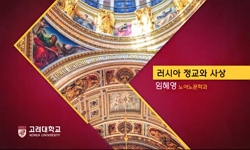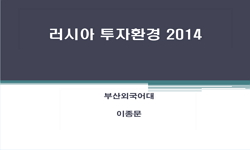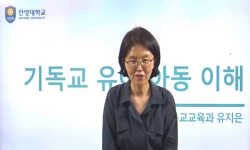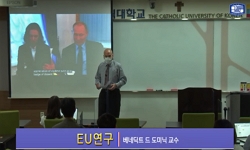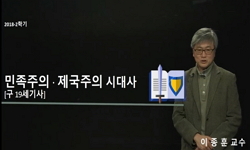본 연구는 종교적 배타성이 제노포비아 형성과 심화에 중요한 원인이 될 수 있다고 보고, 소련붕괴 이후 러시아에서 제노포비아 현상이 빠르게 확산 및 심화되고 있는 원인을 종교-국가, 종...
http://chineseinput.net/에서 pinyin(병음)방식으로 중국어를 변환할 수 있습니다.
변환된 중국어를 복사하여 사용하시면 됩니다.
- 中文 을 입력하시려면 zhongwen을 입력하시고 space를누르시면됩니다.
- 北京 을 입력하시려면 beijing을 입력하시고 space를 누르시면 됩니다.
현대 러시아에서의 제노포비아와 종교: 러시아 정교회의 배타성을 중심으로
한글로보기https://www.riss.kr/link?id=G3734535
- 저자
-
발행기관
-
-
발행연도
2010년
-
작성언어
Korean
-
주제어
러시아 연방 ; new religion ; skinhead ; Russian Federation ; the basis of the social concept of Russian Orthodox Church ; religious law(1997) ; Russian Orthodox Church ; Fundamentalism ; religious conflict theory ; sect ; antiwesternism ; state-church relations ; nationalism ; ultrarightist ; 러시아 정교회 ; 러시아 정교 근본주의 ; 갈등이론 ; 종교갈등론 ; 제노포비아 ; 극우세력 ; 정교관계 ; 반서구주의 ; 섹트 ; 신흥종교 ; 스킨헤드 ; 신종교법 ; 제도적 제노포비아 ; 법적 제노포비아 ; 반극단주의법 ; 종교교육 Russian Federation ; Russian Orthodox Church ; Russian Orthodox ; Fundamentalism ; conflict theory ; religious conflict theory ; Xenophobia ; ultrarightist organization ; state-church relations ; antiwesternism ; sect ; new religion ; skinhead ; religious law ; institutional xenophobia ; legal xenophobia ; law on counteraction to extremism ; religious education
-
자료형태
한국연구재단(NRF)
-
0
상세조회 -
0
다운로드
부가정보
국문 초록 (Abstract)
본 연구는 종교적 배타성이 제노포비아 형성과 심화에 중요한 원인이 될 수 있다고 보고, 소련붕괴 이후 러시아에서 제노포비아 현상이 빠르게 확산 및 심화되고 있는 원인을 종교-국가, 종교-사회관계 그리고 종교의 사회적 태도라는 관점에서 고찰하였다. 구체적으로 1997년 <신종교법> 제정으로 실질적 ‘국교(國敎)’의 위치에 있는 러시아 정교회의 타종교에 대한 인식과 태도가 국가 종교정책, 지방권력기관, 언론과 교육에 어떻게 반영되었는가와 그것이 러시아 사회에 미친 영향을 분석하였다. 그 결과 현대 러시아에서는 정교회 혹은 정교도가 아니라는 이유로 정교회, 제도, 국가권력, 교육, 언론에 의해 여러 가지 차별을 받고 있거나 받을 수 있는 것이 현실이며 그러한 상황이 개선될 것이라고 예측하기 어려운 상황들이 계속되고 있다는 점이다. 특히 러시아 사회에서 ‘섹트(секта)’란 용어의 사용이 늘고 있다는 것이 그러한 부정적인 시각을 갖게 한다. 러시아 사회에서 섹트로 낙인찍힌다는 것은 러시아에서 함께 살 수 없다는, 러시아에 동화될 수 없다는 것을 의미가 부여되고 있다. 그리고 이러한 의미는 정교회, 언론에 의해 끊임없이 확대 및 재생산되고 있으며 국가권력기관의 감시 및 통제로 표현되고 있다. 이러한 시각에서 ‘섹트’란 용어는 소비에트 시기 ‘인민의 적(враг народа)’ 혹은 17세기 ‘이단자(еритик)’라는 용어에 비교될 수 있다. 이렇듯 현대 러시아 사회에서 ‘섹트’라는 단어는 종교적 의미를 넘어 ‘우리(свои)’와 ‘타자(чужие)’를 구분하는 용어가 된 것으로 보인다. 이처럼 종교라는 것이 종종 민족이나 인종과 밀접하게 연결된다는 점이다. 종교하면 떠 올리는 민족이나 인종이 있는가 하면 반대의 경우도 있기 때문이다. 즉 종교적 차별이 민족적, 인종적 차별을 유발 및 심화시킬 가능성이 있다는 것이다. 이러한 관점에서 러시아에서의 종교적 제노포비아에 대한 이해는 러시아의 제노포비현상을 연구하는 중요한 요소로 볼 수 있다.
다국어 초록 (Multilingual Abstract)
This research, in terms of that religious exclusivity could be an important cause of formation and deepening of xenophobia, investigated xenophobia's phenomenon rapidly spreading and deepening in contemporary Russia in next point of views: religion-st...
This research, in terms of that religious exclusivity could be an important cause of formation and deepening of xenophobia, investigated xenophobia's phenomenon rapidly spreading and deepening in contemporary Russia in next point of views: religion-state, religion- society relations and social attitude of religion in Russia after Soviet Union's collapse Concretely, the Russian Orthodox Church(ROC) became real 'state-religion' by enacting the <New Religious Law>(1997) in Russia. Therefore, analyzed how ROC's attitude to other religions influences on state religious policy, local government, mass media and education. Also, analyzed how it influences on Russian society. As a result, because of non-orthodox church or non-orthodox believer in contemporary Russia, they could be treated discriminatingly by ROC, institution, state power, education, mass media. Also, it is difficult to predict that the situation could be improved. Specially, the increase of 'sect' terminology's use on Russia society makes have such contradictory perspective. On Russia society if somebody is branded as a sectarian, it means that he(she) can not domesticate and be assimilated in Russia. These meaning is snowballing by ROC and mass media. On the other side, it is expressed with watch and control of the administrative machinery of a state. In this point of view, 'sect' terminology can be compared in terminology of Soviet period 'People's enemy' or 17th century 'Heretic'. In other words, in contemporary Russia word 'sect', passes over religious meaning, differentiates between 'we' and 'they'. Furthermore, it is called that religion is often closely linked with nation or ethnic. For example, a specific religion could recall a specific nation or ethnic, and there is opposite case. That is, the religious distinction has a possibility to cause ethnic, racial discrimination. In conclusion, understanding about religious xenophobia could be an important element to study xenophobia's phenomenon in contemporary Russia.




